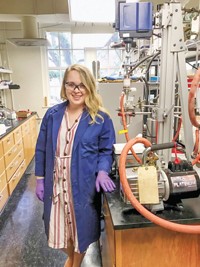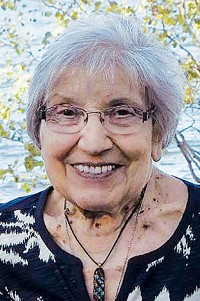Advertisement
Grab your lab coat. Let's get started
Welcome!
Welcome!
Create an account below to get 6 C&EN articles per month, receive newsletters and more - all free.
It seems this is your first time logging in online. Please enter the following information to continue.
As an ACS member you automatically get access to this site. All we need is few more details to create your reading experience.
Not you? Sign in with a different account.
Not you? Sign in with a different account.
ERROR 1
ERROR 1
ERROR 2
ERROR 2
ERROR 2
ERROR 2
ERROR 2
Password and Confirm password must match.
If you have an ACS member number, please enter it here so we can link this account to your membership. (optional)
ERROR 2
ACS values your privacy. By submitting your information, you are gaining access to C&EN and subscribing to our weekly newsletter. We use the information you provide to make your reading experience better, and we will never sell your data to third party members.
Environment
Childbirth policies for grad students
March 6, 2006
| A version of this story appeared in
Volume 84, Issue 10
The item on the "Progressive" childbirth accommodation policy at Stanford University's chemistry department made me smile (C&EN, Nov. 7, 2005, page 8). Nineteen years ago, my husband and I-newlywed first-semester graduate students studying chemistry at Colorado State University (CSU)-were surprised by my unexpected pregnancy. I was mortified at the thought of informing the professor whose research group I had arranged to join the following summer.
Frank Stermitz's encouraging response soon laid my anxieties to rest. Transferring me a semester early from the department-sponsored teaching assistantship to his grant-sponsored research assistantship, he allowed me to begin my dissertation project immediately after the Christmas break. When my daughter was born the following summer, he gave me several weeks of paid leave, requesting only that I study for cumulative exams when I had the time.
After I returned to the laboratory, Stermitz and my husband's adviser, Ken DeBruin, supported the unorthodox hours that allowed our daughter (and a year later, our son) to have a continuous parental presence. At a time when other professors in the department were demanding 12- to 14-hour days and weekend group meetings or were requiring that pregnant graduate students sign liability waivers and continue working in the lab, Stermitz always made sure that there were cookies at his group meetings in case one of his many "graduate student grandchildren" had to be present.
My husband and I both defended our dissertations less than four years from our matriculation at CSU. It required a lot of hard work, but no exertion would have sufficed had Stermitz not long before implemented his truly visionary childbirth and family accommodation policy.
Today, nearly two decades later, C&EN asks whether Stanford's move will prompt other chemistry departments to follow suit in establishing similar policies. If there were more people like Frank Stermitz in the world, such a question would be completely unnecessary. And to him, all I can say is, "Thank you."
Christie Boros
Chapel Hill, N.C.





Join the conversation
Contact the reporter
Submit a Letter to the Editor for publication
Engage with us on Twitter